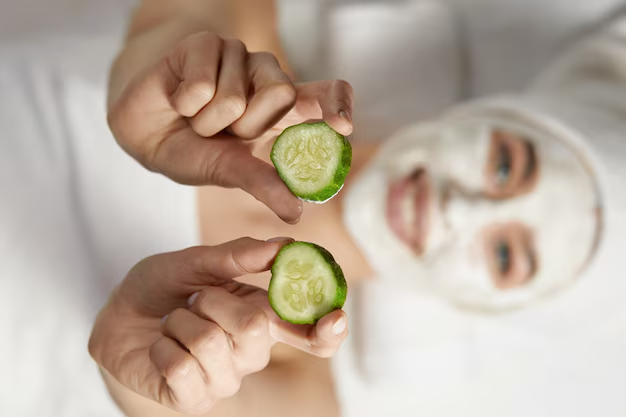Can Aloe Vera Soothe Your Eczema? Here's What You Should Know
If you've ever experienced the maddening itch and discomfort of eczema, you're not alone. This skin condition affects millions, leaving many searching for relief. Among the plethora of treatments, aloe vera has garnered attention for its soothing properties. But does aloe vera genuinely help eczema? Let's dive into this topic and uncover the potential benefits, considerations, and ways to incorporate aloe into your eczema management plan.
Understanding Eczema: A Quick Overview
What is Eczema?
Eczema, or atopic dermatitis, is a chronic inflammatory skin condition characterized by dry, itchy, and inflamed skin. It often begins in childhood but can occur at any age. While the exact cause remains elusive, it's believed to involve a combination of genetic and environmental factors. Flare-ups can be triggered by stress, allergens, irritants, and changes in weather, making management challenging.
Common Symptoms
- Red, inflamed patches
- Severe itching, often worsening at night
- Small, raised bumps that may ooze and crust
- Dry, scaly skin
- Skin thickening from prolonged scratching
Aloe Vera: Nature's Soothing Gel
What Makes Aloe Vera Special?
Aloe vera is a succulent plant known for its gel-filled leaves, widely used for skin conditions and wounds. It’s revered for its anti-inflammatory, antimicrobial, and skin-healing properties. But what exactly makes it a go-to for soothing skin issues?
- Antioxidants: Aloe contains vitamins A, C, and E, which help protect skin cells from damage.
- Polysaccharides: These are compounds that support skin hydration, making aloe an excellent moisturizer.
- Sterols: These compounds help reduce inflammation and itching, key concerns for eczema sufferers.
Aloe Vera and Eczema: How Does It Work?
Aloe vera is praised for its capability to soothe the skin, and here's why it might be beneficial for eczema:
Moisturizing Effects: Eczema often leads to impaired skin barrier function. Aloe's natural moisture-locking abilities can provide hydration, reducing dryness and flakiness.
Anti-inflammatory Properties: Aloe can diminish the swelling and redness associated with eczema through its natural anti-inflammatory compounds.
Enzymatic Action: It contains enzymes that facilitate healing by breaking down dead tissue and promoting new skin growth.
Incorporating Aloe Vera Into Your Eczema Management
Determining the Right Form
Aloe vera is available in several forms, each offering its unique benefits and drawbacks:
Pure Aloe Vera Gel: Ideal for direct application, ensuring no added irritants. Look for products with a high percentage of aloe.
Aloe Vera Creams and Lotions: Often combined with other soothing ingredients like chamomile or calendula, making them a preferable choice for comprehensive skin care.
Aloe Vera Capsules and Supplements: While oral intake is more about overall well-being rather than direct eczema treatment, ensuring general health can indirectly impact your skin condition. Always consult a healthcare professional before starting any supplements.
Application Tips for Maximum Relief
Achieving the best results from aloe vera involves knowing how to apply it effectively:
Patch Test First: Conduct a small patch test to ensure no adverse reaction occurs.
Apply to Damp Skin: Post-bathing, apply aloe vera to slightly damp skin for optimum moisture retention.
Consistent Use: Make it a regular part of your skincare routine to maintain effectivity.
Combine Wisely: Pair aloe with other eczema-friendly practices like hypoallergenic moisturizers or colloidal oatmeal baths.
Considering the Limitations
While aloe vera possesses many properties favorable for skin health, it's important to approach its use with a well-rounded perspective:
Individual Reactions: Like any natural remedy, aloe vera may not work for everyone. Some individuals may experience an allergic reaction or irritation.
Not a Miracle Cure: Aloe can soothe symptoms but won't address the root causes of eczema.
Product Variability: Store-bought aloe products can vary greatly in quality and concentration, so choose wisely.
Beyond Aloe: Other Natural Remedies for Eczema
Colloidal Oatmeal
This finely-ground oatmeal is a popular natural remedy for eczema. It can create a protective barrier and soothe inflamed skin when used in baths or creams.
Coconut Oil
Rich in fatty acids, coconut oil can help lock in moisture and provide a soothing sensation, particularly effective for the dry, rough skin common in eczema.
Calendula
With its anti-inflammatory and skin-healing properties, calendula cream can be an excellent addition to your skincare regimen.
Honey
Known for its antimicrobial capabilities, honey can be applied directly to eczematous skin to help prevent infection and promote healing.
Expert Tips for Managing Eczema Flare-ups
Identify Triggers: Keep a diary to track potential eczema triggers and avoid them where possible.
Practice Gentle Skincare: Use non-irritating, fragrance-free products to avoid exacerbating symptoms.
Hydrate: Both internally and externally. Drinking plenty of water and using a humidifier can prevent the skin from drying out.
Manage Stress: Since stress can trigger flare-ups, adopting stress-reduction techniques like yoga or meditation can be beneficial.
Final Reflection: Is Aloe Vera Right for You?
Aloe vera emerges as a promising aid in the soothing journey against eczema, mainly for its hydrating and anti-inflammatory properties. While not a cure, it may provide symptom relief for many sufferers. Embrace aloe vera as part of a broader holistic approach, incorporating it wisely within your eczema management toolkit. As always, consult with a dermatologist to tailor solutions to your specific skin needs. Remember, patience and consistency are key allies in managing eczema effectively.
Quick Takeaways for Eczema Sufferers
- 🌿 Aloe Vera Benefits: Hydrates, reduces inflammation, and promotes healing.
- 🧴 Application Tips: Use pure gel, patch test first, and apply regularly.
- 🚫 Potential Downsides: Not effective for everyone; quality varies.
- 🌾 Other Remedies: Coconut oil, colloidal oatmeal, calendula, honey.
- 🔍 Proactive Measures: Identify triggers, use gentle skincare, stay hydrated.
- 🙏 Overall Skin Health: Combine treatments with lifestyle adjustments for best results.
Incorporating probiotics and a nutrient-rich diet can also enhance overall skin resilience, supporting better long-term management of eczema.

